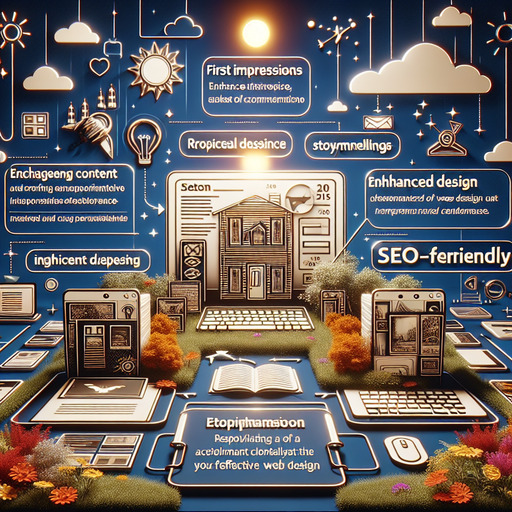
-
Table of Contents
- Web Design Examples for Modern Businesses: Crafting a Digital Presence
- Why Web Design Matters for Modern Businesses
- First Impressions Count
- Enhancing User Experience
- Key Elements of Modern Web Design
- Responsive Design
- Visual Hierarchy
- Case Study: Airbnb
- Incorporating Engaging Content
- Storytelling Through Design
- SEO-Friendly Content
- Conclusion: Elevate Your Business with Effective Web Design
- Questions and Answers
- What is the importance of responsive design in web development?
- How can visual hierarchy improve user engagement on a website?
- Why is storytelling important in web design?
Web Design Examples for Modern Businesses: Crafting a Digital Presence
In today’s digital age, a compelling web design is crucial for modern businesses aiming to establish a strong online presence. A well-designed website not only attracts visitors but also converts them into loyal customers. This article explores the key elements of effective web design, providing actionable insights and real-world examples to help businesses thrive online.
Why Web Design Matters for Modern Businesses
Web design is more than just aesthetics; it’s about creating an intuitive user experience that aligns with your brand’s goals. A well-structured website can significantly impact your business’s credibility and customer engagement.
First Impressions Count
Your website is often the first interaction potential customers have with your brand. A professional and visually appealing design can make a lasting impression, encouraging visitors to explore further.
Enhancing User Experience
Effective web design focuses on user experience (UX), ensuring that visitors can easily navigate your site and find the information they need. This involves intuitive layouts, fast loading times, and mobile responsiveness.
Key Elements of Modern Web Design
To create a successful website, businesses should focus on several key design elements. These components work together to create a seamless and engaging user experience.
Responsive Design
With the increasing use of mobile devices, responsive design is essential. A responsive website adapts to different screen sizes, providing a consistent experience across all devices.
- Ensure your website is mobile-friendly.
- Test your site on various devices and browsers.
- Use flexible grids and layouts.
Visual Hierarchy
Visual hierarchy guides users’ attention to the most important elements on a page. By strategically using size, color, and contrast, you can direct visitors to key information and calls to action.
Case Study: Airbnb
Airbnb’s website is a prime example of effective visual hierarchy. The use of large, bold images and clear calls to action helps guide users through the booking process seamlessly.
Incorporating Engaging Content
Content is a critical component of web design. Engaging, relevant content keeps visitors on your site longer and encourages them to take action.
Storytelling Through Design
Use your website to tell your brand’s story. Incorporate elements like videos, infographics, and customer testimonials to create a narrative that resonates with your audience.
SEO-Friendly Content
Optimize your content for search engines to increase visibility. Use relevant keywords naturally and ensure your site structure supports easy navigation for both users and search engines.
Conclusion: Elevate Your Business with Effective Web Design
In conclusion, a well-designed website is a powerful tool for modern businesses. By focusing on responsive design, visual hierarchy, and engaging content, you can create a digital presence that attracts and retains customers.
For more insights on web design, visit this Wikipedia page on web design.
Questions and Answers
What is the importance of responsive design in web development?
Responsive design ensures that your website functions well on all devices, providing a seamless user experience and improving accessibility for a wider audience.
How can visual hierarchy improve user engagement on a website?
Visual hierarchy helps guide users’ attention to important elements, making it easier for them to find information and take desired actions, thus enhancing engagement.
Why is storytelling important in web design?
Storytelling creates an emotional connection with visitors, making your brand more relatable and memorable, which can lead to increased customer loyalty and conversions.
If you’re interested in learning more about our web design services or have any questions, please contact us.